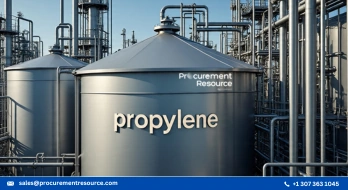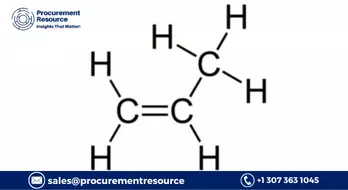IRPC Public Company Limited's Petrochemical Plant in Rayong, Thailand will Produce 640 thousand tonnes of Propylene after Installation of DCC Cyclone Reactor
.webp)
IRPC Public Company Limited, an acclaimed petrochemical company based in Thailand, has made a new unit operational which is anticipated to yield a colossal 640 thousand tonnes of Propylene. The company has installed a Deep Catalytic Cracking cyclone reactor which is pinned as the reason for the gigantic production of Propylene, aimed at helping the company's other production endeavors too.
The installation of the new DCC unit was anchored by Sarens, a proclaimed proponent of heavy lifting and rental of cranes and heavy-duty vehicles. Sarens assisted IRPC in first deconstructing the earlier cyclone reactor installed in 2012 and then helped to install the new unit.
IRPC Public Company Limited is headed towards refurbishing and modernizing its entire gamut of production. The DCC cyclone reactor unit is one of the most instrumental strides towards the objective. The annual production will be kicked to a massive stroke, which will reap immense benefits for the organization substantiating the overall growth and putative placement globally in the long run.
Request Access For Regular Price Update of Propylene
The IRPC began renovating its production units in March this year, and the new upgrades, including the annexation of the new unit, are one of the company's endeavours. The company is eyeing to attain its goal of becoming the leading petrochemical producer in Asia. Since 2012, the company has invested over USD 1.3 billion.
IRPC has the backing of Sarens, which it has decided to bank upon owing to its industrial dexterity and adeptness in the domain. Having helped IRPC in dismantling and construction of the new DCC unit, Sarens had reportedly sent three cranes to IRPC's location at Rayong from its international fleet. The three cranes were: Terex-Demag CC2800, Terex-Demag AC650, and Tadano Faun ATF160G. Along with these, Sarens had also sent its cohort of seven experts to help IRPC in DCC cyclone reactor installation.
The lifting frame designed for demolishing and dismantling the older reactor and the installation of the new DCC unit had to be structured by Sarens. The anticipated lifter couldn't potentially stand up to the task requirement; hence, the new lifter had to be practically designed.
Sarens was given a conducive and non-invasive environment to plan and execute the new project task successfully. The quick execution of the project could thus be attributed to the IRPC's vigilance and assistance as one of the factors.
As per the Fleet and Operations Manager of Sarens in Thailand, Mr. Socrates Kannan, the team judiciously tried its best to execute the task within the right time. The team's primary concern and agenda was the operation involved in obliterating the older unit and planting the new one. The delay could have obstructed the entire operation of switching to a new plant, thereby scarring IRPS with a massive economic jolt. Hence, the Sarens team worked on their toes to accomplish the said task effectively and punctually.
Sarens is a sought-after company in the heavy-lifting and engineered transport industry. It is prominent globally, having a laudatory experience of over 60 years in developing and devising strategies behind a range of sectors and projects.
It had its involvement in Clean Fuel Project Thailand. Moreover, it was also an essential contributor to the assemblage of two jackets in Al Shaheen Oil Field, Qatar. Apart from that, the company has also assisted in the construction of the Skikda refinery in Algeria, the Petroperu refinery in Talara, Peru, and the S-Oil plant expansion in Ulsan, South Korea.
Read More About Propylene Production Cost Reports - REQUEST FREE SAMPLE COPY IN PDF
The new DCC reactor cyclone unit is not only expected to revitalize the production of Propylene by crude oil distillation but is also anticipated to contribute to the production of a multitude of other value-added products. The propylene synthesis will take place through the transformation of the long-chain residue of crude oil to Propylene, which would be used as a monomeric unit to polypropylene.
As per Procurement Resource, the boost of 640 thousand tonnes is phenomenal and will help IRPC pave the way to its success not only in terms of propylene synthesis but also in taking its conglomeration, partnership, and new ventures to the next level. Considering the essence of Propylene, the revenue stream of IRPS seems robust and promising to Procurement Resource.


.webp)
